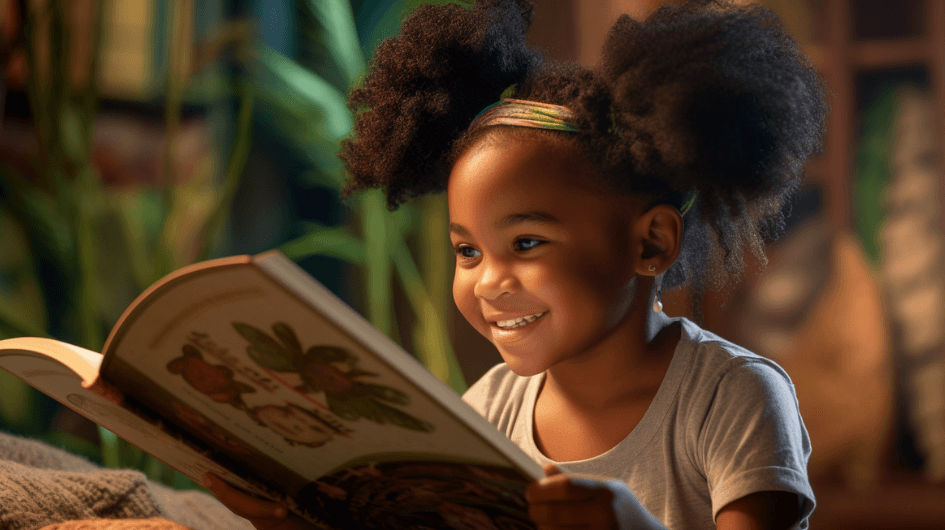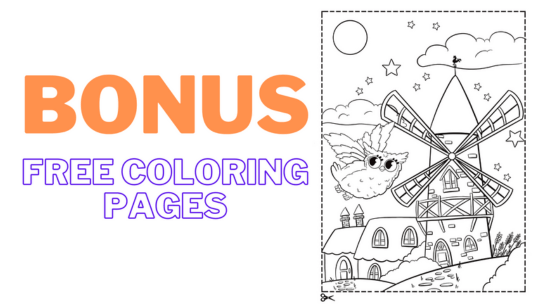
How to Choose the Right Books for Your Child
Choose the right books for your child and foster a love for reading that can have a profound impact on their development, imagination, and lifelong learning.

As parents, we recognize the profound impact that books can have on a child’s development. Choose the right books for your child and ignite their imagination, foster a love for reading, and promote emotional and cognitive growth. However, with countless options available, choosing the right books for your child can be overwhelming.
By understanding the factors that contribute to optimal book choices and considering the specific needs and interests of your child, you can create a reading experience that is both enjoyable and beneficial.
To choose the right books for your child, you have to understand their developmental needs and how reading can support their growth. Child psychologists emphasize the profound impact that reading has on various aspects of a child’s development, including cognitive, language, emotional, and social domains. Let’s explore these connections in more detail:
Reading exposes children to a wide range of vocabulary, helping them develop stronger language skills and expanding their communication abilities.
Engaging with books enhances cognitive abilities such as attention, memory, problem-solving, and critical thinking, as children follow storylines, make connections, and analyze information.
Through storytelling, books stimulate a child’s imagination, allowing them to create mental images and explore new ideas.
Books with rhymes and repetitive patterns promote phonological awareness, helping children recognize and manipulate sounds in words, which is crucial for early literacy.
Exposure to diverse words and contexts in books expands a child’s vocabulary, fostering language development and comprehension skills.
As children progress, reading comprehension skills improve, enabling them to understand and analyze more complex texts.
Books provide opportunities for children to connect with characters, understand different emotions, and develop empathy and emotional intelligence.
Stories that explore emotions and challenges can help children navigate their own feelings and develop strategies for coping with various situations.
Books featuring diverse characters and themes expose children to different perspectives, promoting cultural understanding and empathy.
Reading aloud and engaging in shared reading experiences can enhance social interactions, communication skills, and bonding.
Understanding the dynamic relationship between child development and reading allows to select books that align with their specific needs and promote their overall growth.
When selecting books for your child, there are several factors to consider. Child psychologists emphasize the significance of these factors in ensuring that the chosen books align with your child’s developmental stage, interests, and overall well-being. Keeping these considerations in mind can make informed choices that will maximize the benefits of reading.
Choosing the right books for your child can be a rewarding experience. To help you make informed decisions, child psychologists offer the following tips for selecting books that align with your child’s developmental needs and interests:
Choosing the right books for your child’s age group is essential for their engagement and enjoyment of reading. Remember that children may vary in their reading abilities and preferences, so these age ranges are approximate and flexible. Here are some book recommendations for various age groups:
· Board books with simple, colorful illustrations and textures to engage their senses.
· Picture books with repetitive phrases and rhymes to encourage language development.
· Books with familiar concepts like animals, shapes, colors, and daily routines.
· Picture books with engaging stories, vibrant illustrations, and relatable characters.
· Books with simple narratives, alphabet and counting books, and stories about emotions and friendships.
· Interactive books with flaps, pop-ups, or touch-and-feel elements for hands-on exploration.
· Beginning chapter books with larger print, shorter chapters, and simple plots.
· Books with imaginative stories, humor, and relatable themes spark their imagination.
· Series books that allow children to follow the adventures of beloved characters.
· Middle-grade novels with more complex plots, diverse characters, and age-appropriate challenges.
· Books explore themes of friendship, identity, and self-discovery.
· Adventure, fantasy, or historical fiction books foster their love for storytelling.
· Young adult novels with deeper themes, complex characters, and diverse perspectives.
· Books addressing important social issues, personal growth, and coming-of-age experiences.
· Genre fiction like mystery, science fiction, or romance to cater to their individual interests.
These book lists are a starting point for selecting books that cater to your child’s age group. Remember to consider their individual interests, reading abilities, and preferences when making choices.
Remember, the goal is to foster a positive and enjoyable reading experience for your child. By implementing these strategies, you can nurture a love for reading that will inspire lifelong learning and provide endless opportunities for personal growth and development.
Choosing the right books for your child and fostering a love for reading is a journey that can have a profound impact on their development, imagination, and lifelong learning.
Encouraging a love for reading enriches your child’s imagination and cognitive skills. It fosters emotional development, cultural awareness, and critical thinking. It opens doors to new worlds, broadens their perspectives, and nurtures their creativity.
Immerse yourselves in the magic of children’s books, and witness the power they have on your child’s mind and heart. Together, let’s create a generation of avid readers and passionate learners.
Happy reading!

Choose the right books for your child and foster a love for reading that can have a profound impact on their development, imagination, and lifelong learning.

Getting your child excited about reading opens up a world of imagination, knowledge, and personal growth, and becomes a cherished lifelong companion.

Mindful reading offers a unique opportunity to foster mindfulness, connect with your child, and nurture a lifelong love for reading.

From the early developmental stages to adulthood, picture books provide a powerful tool for learning, imagination, empathy, and connection.

By engaging children in reading and fostering meaningful discussions, parents can help children develop a strong foundation of empathy and compassion.
